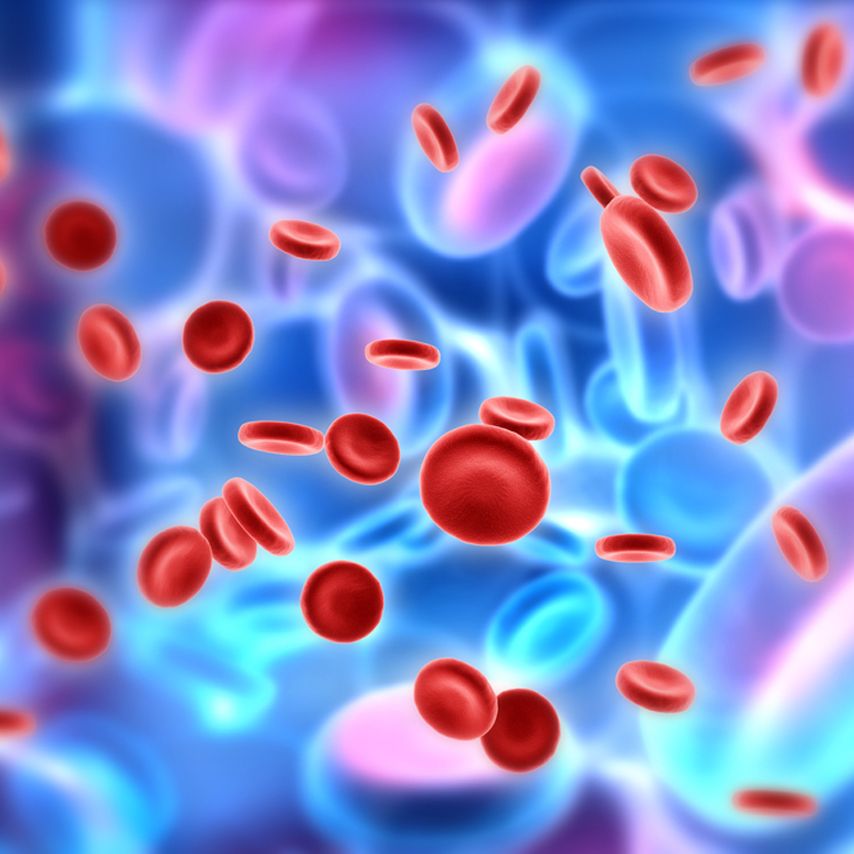Haematology
Haematology is the branch of internal medicine that deals with diseases of the blood and hematopoietic and lymphatic organs. The name is made up of the Greek word haima “blood” and logos “science”.
The main subjects of haematology are coagulation disorders, anaemia, and haematopoietic tumours (such as leukaemia or lymphomas).

Symptoms suggestive of haematological disorders may include:
- pale skin
- feeling tired, weak
- feeling cold
- anaemias, inherited and acquired
- iron deficiency
- haemophilic problems
- enlarged lymph nodes and/or spleen
- decreased ability to concentrate
- insomnia
- itchy skin, brittle nails
- dizziness, headache, close to fainting conditions
When to see a haematologist?
With coagulation disorders
The body’s blood clotting system works well when our body produces the right amount of blood clotting substance at the site of an injury to prevent more blood loss. If too much of this substance is produced, you may experience increased blood clotting, blood clots, or deep vein thrombosis. However, if blood clotting is inadequate, haemophilia may occur.
With thrombosis
An insidious blood clotting disease that often develops completely unnoticed, without more pronounced symptoms. The point of it is that blood clots form in the veins that partially or completely block the blood flow.

It is important to take the symptoms of thrombosis seriously so that we can prevent the development of latter, bigger trouble. Such symptoms include a swollen, red, touch-sensitive, warm limb, which most often occurs around the foot, ankle, or thigh.

With anaemia
It also develops slowly, latently, at first it does not cause any serious symptoms or problems in our life. We talk about anaemia when the number of red blood cells or haemoglobin falls below a certain limit. Symptoms may include paleness, feeling cold, fatigue, decreased ability to concentrate, tinnitus, and fainting.
With leukaemia
It usually develops slowly, therefore the patient usually only goes to a doctor later with the symptoms. A laboratory test for another disease may reveal that it is a disease of the bone marrow, as the change in the number of white blood cells is noticeable. Typical symptoms are fever, weight loss, headache, common infections, bone pain, enlarged lymph nodes, spleen or liver, and rapid heartbeat.
With lymphoma
The disease attacks lymphocytes, cells in the lymphatic system that begin to behave, multiply and grow in the body as cancerous cells. Its most characteristic symptom is visibly swollen lymph nodes, in which the accumulated abnormal lymphocytes are organized into nodules. In addition, inexplicable recurrent fever, sweating, fatigue, dyspnoea, cough, and loss of appetite may be symptoms of the disease.
What happens during a haematological examination?
The haematological examination begins with recording the patient’s medical history, inherited diseases, and symptoms. This is followed by a general physical examination (examination of the lymph nodes as well as the condition of the spleen). Enlargement of the lymph nodes may indicate some haematological disease and therefore, in addition to the indication of blood sampling, further tests may be performed.
The proportion of white blood cells, red blood cells and platelets, their health is vital. Quantitative changes in any of them can interfere with the normal functioning of the body. Abnormalities in this blood count can easily come to light during a routine blood draw. The exact laboratory items will be determined by the haematologist during the consultation.
However, since abnormal blood counts may not necessarily indicate lymphatic or bone marrow damage, but may be an infection or an autoimmune disease, your doctor may recommend additional gastroenterological tests.
In some cases, cytological sampling and histological analysis of bone marrow or lymph nodes may be required.
Additionally, imaging procedures may assist in accurate diagnosis in the form of ultrasound, CT, or MRI.
